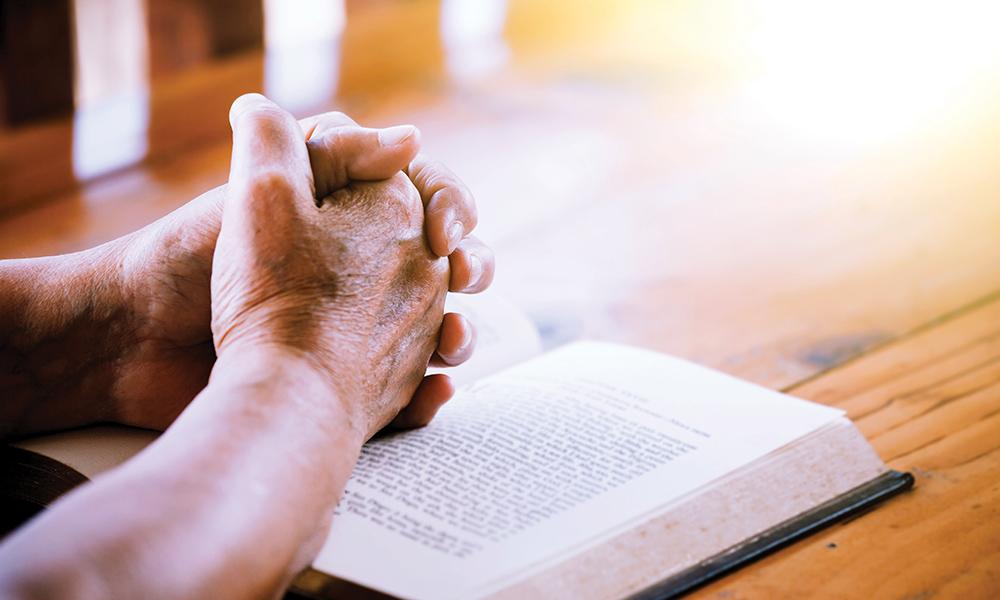
A Listening Heart: Prayer in a Pandemic
Maybe in these recent months we have had an opportunity to think about our priorities. Perhaps they are changing. We may be asking ourselves what is important in life. Certainly, our relationship to God may come under examination.
Faith tells us God is closer to us than we are to ourselves. So we are never alone, never without access to God. Prayer is the door to this Presence in our lives.
In prayer we find one abiding Presence, one center, perhaps hidden within all the other preoccupations in life. And this one center helps prioritize all the other centers. The First Commandment encourages us: Have one God.
The following are reminders about prayer:
The God who accompanies us in life is compassionate and merciful.
Many of us were raised in a time of Jansenism. Jansenism was a distortion of Christianity. It stressed sin and God’s judgment. It caused unnecessary anxiety and worry about guilt and God’s punishment. When St. John Paul II declared St. Thérèse of Lisieux a Doctor of the Universal Church, he said, “She helped heal souls of the rigors and fears of Jansenism, which tended to stress God’s justice rather than His divine mercy.”
We are God’s good creation, the Beloved of God.
No matter what we think about ourselves or whatever people say about us, we are the Beloved of God. God loved us into life and accompanies us in love. We are essentially good, and we cannot change that reality. It is so easy to have a poor self-image. We are not what we feel about ourselves. We are not what we do. We are not what we have. We are who God says we are, God’s Beloved. We have immense worth and dignity.
Faith is expressed in a trusting relationship with the Lord.
Faith is not simply having ideas about God and following rules. Faith is fundamentally a relationship with the Lord. We do not have to find God. God is already with us, so the relationship has begun. It is we who have to awaken to the reality of this relationship and enter into it with trust. One theologian defined faith as “the acceptance, finally, of having been accepted all along.”
Prayer is a conversation, an intimate sharing with a friend.
St. Teresa of Avila described prayer as a conversation with a friend. And just as in a conversation with a friend, prayer can take many forms. We can praise; we can give thanks; we can ask for something; we can talk about ourselves, our feelings, our problems. We can be quiet. In prayer there is nothing we have to do. We just need to be aware of our friend’s presence, and prayer will take its course.
A graced world reveals God’s presence if we have a listening heart.
God is intimately present to creation. It is a graced world. The world shimmers with the presence of the Divine. With the eyes of faith, and a listening heart, creation reveals the presence of God. All creatures great and small inspired St. Francis of Assisi to sing God’s praises. His namesake, Pope Francis, said the Saint from Assisi “shows us how inseparable the bond is between concern for nature, justice for the poor, commitment to society, and interior peace” (Laudato si’).
Our sincere prayer is the deepest source of compassion for a wounded world.
Prayer does not lock us in ourselves. Prayer opens us to acknowledge our dependence on God. We realize our essential poverty. Prayer helps us be more aware of the different kinds of poverty in the world. We all have to wait on God’s mercy. And we wait with all who call on God for relief, for a seat at the table, for respect. Prayer helps us to be more sensitive to the burdens our sister and brothers carry. What we do for them, Jesus said, “You did for me” (Matthew 25:40).
For the blessings in our life, we give thanks.
Perhaps one of the best responses to God is gratitude. With a grateful heart, burdens are a little lighter, vision is a little clearer, sadness is less lingering. Gratefulness gives us perspective and balance. It is a great start for any prayer!



